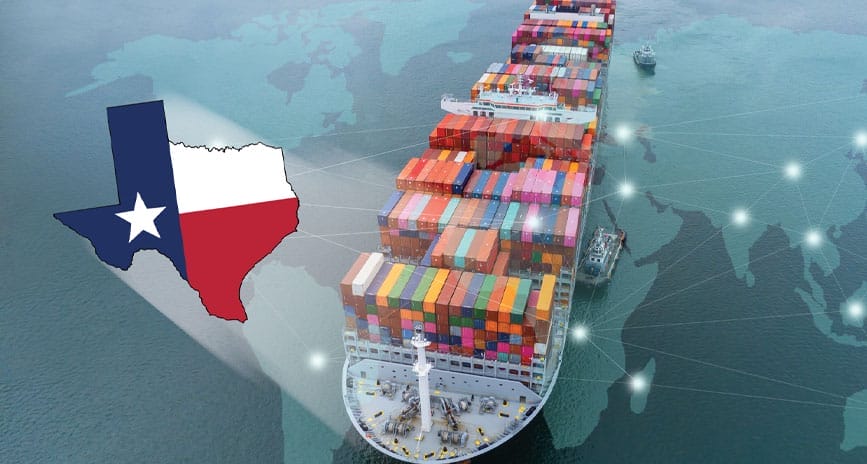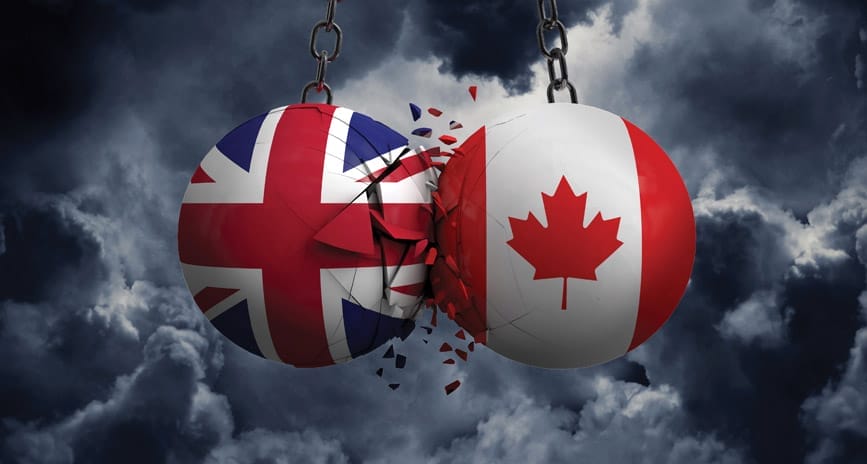Michael Nolan, CEO of the Irish customs clearance solution, Declaron.ie, spoke to us about some of the issues British companies have been encountering trading with the EU, and Ireland in particular, since 1 January and his advice on avoiding them. “It has been a tough 1st Quarter for everyone, with official numbers showing imports from the UK into Ireland down 65% in January of this year. The Free Trade Agreement that was agreed on Christmas Eve 2020 didn’t give businesses enough time to prepare, and everyone under-estimated the amount of paperwork that would be required to continue trading.

“When you compound this with the impact on trade caused by COVID lockdowns across Europe, businesses are really facing a perfect storm. We are starting to see some recovery, but British companies are still facing a lot of challenges trading with Ireland and the rest of the EU. At Declaron, having designed our Customs Clearance Solution to be focused on ease and compliance, our experienced Customs Clearance Agents have been in a great position to help our British customers overcome a lot of these set up issues in the last 3 months. Unfortunately, we continue to see the same issues happening with Customers joining up with us today to import into Ireland. These issues delay them from being able to make their first declaration, so we want to get the message out there to help get businesses prepared regardless of what customs clearance agent they use.
“The first thing we would urge UK Businesses to do is to understand who is going to be the importer of their goods into Europe. The importer must be established somewhere in the EU. This does not have to be in the country you are importing into. For Instance, we have seen UK companies, with say a Danish entity importing with us into Ireland. If as a UK business, you don’t have an entity established in another EU country, you should decide if you want to establish an entity in an EU country. Generally, those UK Customers who have gone this route are not doing so simply to act as the importer, they have other business reasons for doing this, but being able to act as an EU importer helps them maintain their customers. If you don’t have a European entity and aren’t looking to open one, you need to see if your customer in Europe is willing to act as the importer of record. Once it is understood who the importer will be, they will need to register with the appropriate European authority to carry out the import. In Ireland, this is the Irish Revenue Commissioners.
“You will need to get your Economic Operators registration (EORI) and with it your Tax Account Number (TAN). Your TAN is what you will need to fund to pay any duties that are payable on the goods you are exporting from the UK.
NOTE: Don’t think that because there is a Free Trade Agreement that there will be no duties to be paid, this has taken a number of businesses by surprise!
“The determining factor on whether duties are paid is where the goods originate from. If you are bringing goods into the UK from another country and then sending them on to Europe, then duties will be payable on those goods. For the goods to change to being of the UK origin they need to have undergone ‘substantial transformation’. The part that really took businesses by surprise was that the Free Trade Agreement only covered bringing EU goods into the UK but not if the same goods were then sent from the UK back to the EU (and vice versa). This has particularly impacted UK/Irish trade of goods brought from mainland Europe into the UK for both the British and Irish markets.
“Another element that British businesses need time to adjust to is the increase in paperwork outside the actual Customs Declaration. You will need to make sure that your processes allow you to produce the supporting documentation for an import into Europe in time to make and submit the import declaration. Documents such as an invoice and road consignments will be needed, and you will need to confirm that your transport partner is ready to produce pre-boarding notifications (PBNs) and safety and security declarations (ENS). Getting these documents as part of your standard process can take time and cause frustration when starting to export into Europe again. British companies should also be aware that the European authorities are being very strict from the start with the new trade relationship. This has led to many shipments being stopped at European ports and being orange and red routed.
 “Having your goods stopped and delayed in a port will only add costs that will need to be paid by someone. Also, businesses should not think that the import process is finished when the goods leave a port. Tax authorities will audit importers as they do any other tax returns. The Irish Revenue Commissioners can audit importers in the current tax years and the subsequent three tax years so you need to keep your documentation for four years. British authorities have been more lenient with requirements initially, but we know that Irish Revenue has already indicated that they are auditing imports into Ireland from the UK. So be sure to choose wisely when selecting a Customs Clearance Agent to act on your behalf.”
“Having your goods stopped and delayed in a port will only add costs that will need to be paid by someone. Also, businesses should not think that the import process is finished when the goods leave a port. Tax authorities will audit importers as they do any other tax returns. The Irish Revenue Commissioners can audit importers in the current tax years and the subsequent three tax years so you need to keep your documentation for four years. British authorities have been more lenient with requirements initially, but we know that Irish Revenue has already indicated that they are auditing imports into Ireland from the UK. So be sure to choose wisely when selecting a Customs Clearance Agent to act on your behalf.”
For more information visit: Declaron.ie




